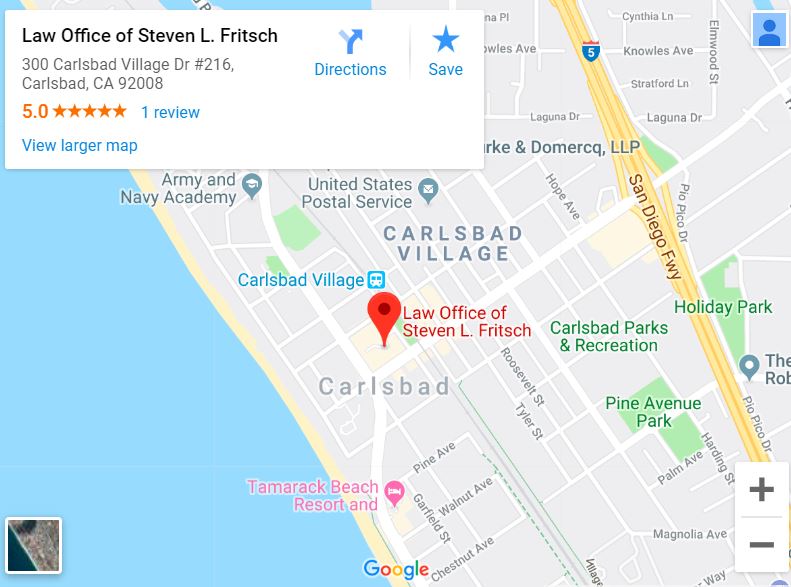
California is a “no fault” state. What this means is that the court will not place blame on either spouse for the breakdown in the relationship and punish a spouse for his or her wrongdoings. In other words, if a spouse has an affair or two or three, the court will not punish that spouse or divide the assets and debts based upon the spouse’s bad acts. The court does not want to get involved in the reason for the divorce or place blame on either spouse. If the court did, the litigation and cost would increase drastically because before the court could divide the assets and debts it would have to determine who is at fault and if both are at fault who is more at fault. This would surely result in mudslinging and would serve no valid purpose.
Note: If you have questions about domestic violence, read our FAQs here.
However, as is usually the case in law, there are exceptions. The court may consider “fault” or evidence of wrongdoing in four circumstances: nullity, breach of fiduciary duty, custody and domestic violence. Even in these exceptions, it is not a free-for-all in the mudslinging department. In other words, the evidence of wrongdoing must be relevant and not done just to badmouth the spouse in front of the judge. For example, in custody proceedings it is relevant to bring up that the other spouse has a drinking problem and a recent DUI but it is not relevant that the same spouse had two affairs and liked to go to strip clubs.
In sum, it may feel good for the innocent spouse to know that the other spouse is being punished for his or her bad acts but the law does not see it that way. Generally, the court will not place blame on either spouse regarding the reason for the divorce. Only in a few instances will the court accept evidence of a spouse’s bad acts. As such, for the purposes of resolving the divorce, spouses will need to put the bad acts behind them no matter how hard it may be to do so.
DISCLAIMER: The above article is for informational and educational use only and is in no way intended to be legal advice. One should contact an attorney for legal advice.
Photo Credit: cesarastudillo
